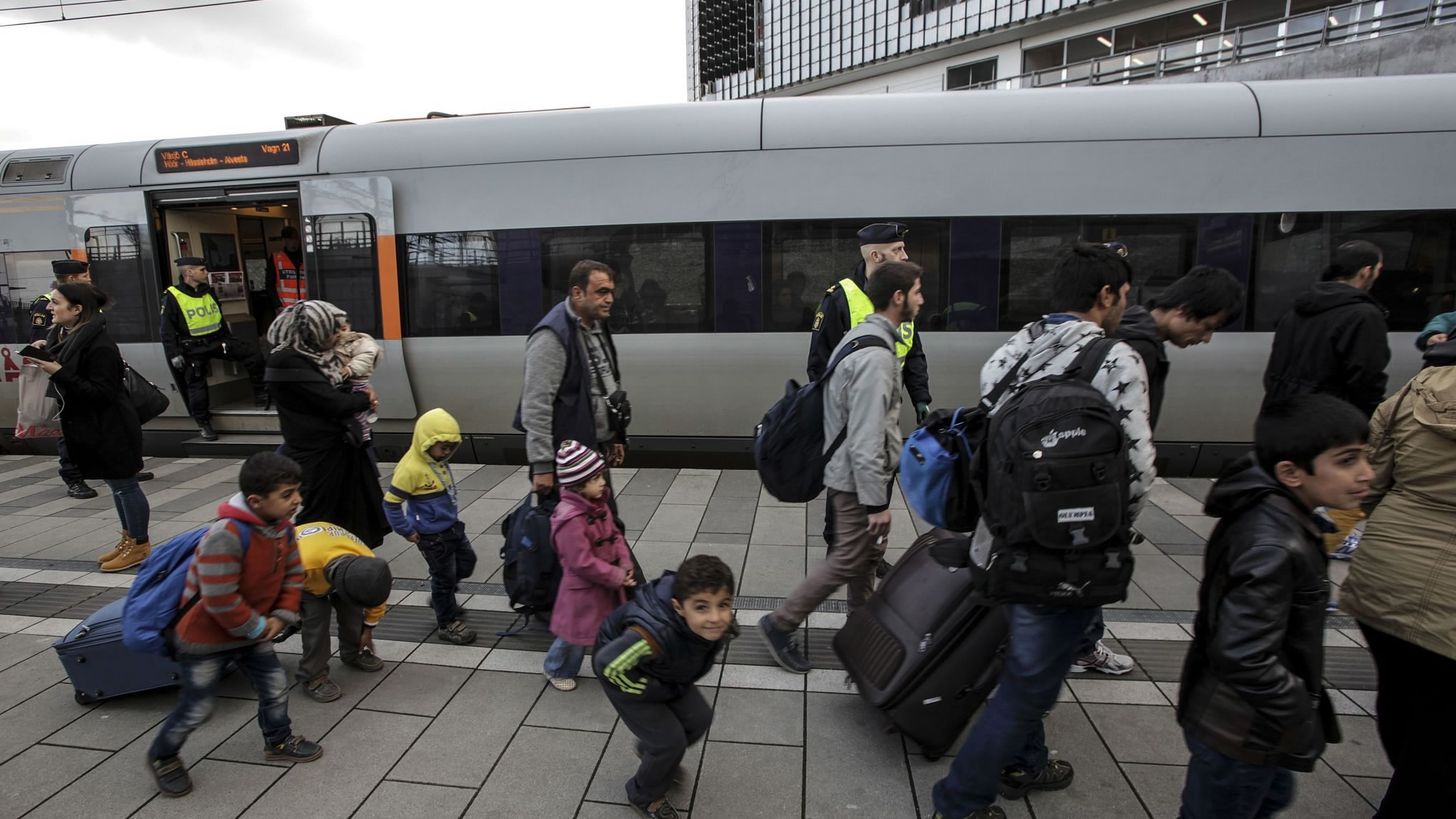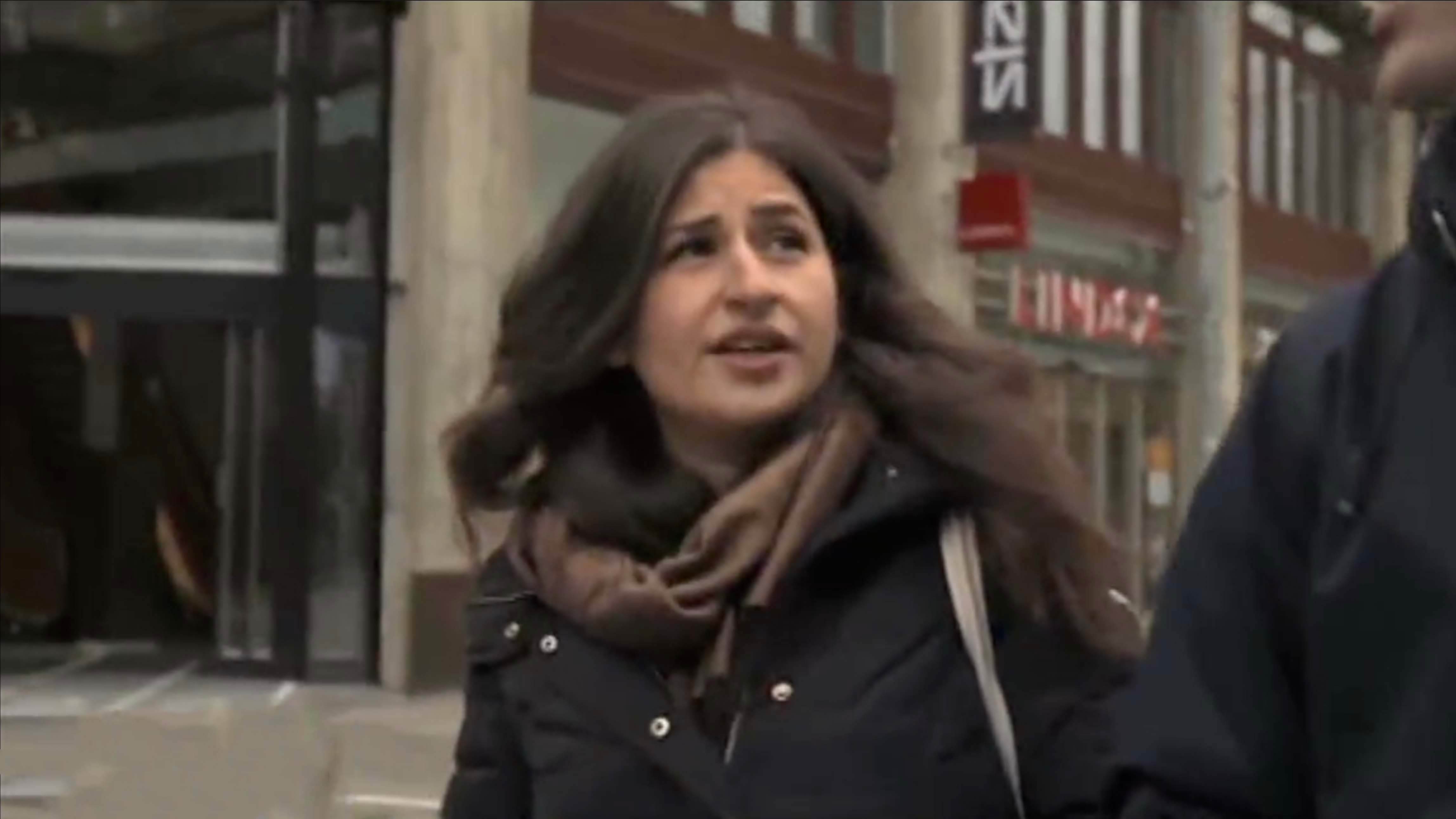
Politics
10:54, 22-Mar-2018
Sweden: Iraq’s lost children will never return
By Guy Henderson

The instructions were clear: meet 26-year-old Kara Hermez inside the Saint Nisbin Assyrian Christian Cathedral at 11 am. Just in time for Sunday service.
But then we got chatting to a man outside who had fled Iraq in the 1980s and since made Sweden his home. Before we knew it, the hundreds of others with similar stories around us had quietly filed into the main hall and the service had begun. We were late.
That is how we found out what kind of character it takes to travel back to Iraq annually despite the risks, once with a group of Swedish MPs, to contribute to re-building a country ravaged by war for 15 years. As we scrambled in and abruptly started filming, Kara was polite but assertive: “You can’t just start filming,” she told us in no uncertain terms. “This is a church service.”

26-year-old Kara Hermez fled from Iraq to Sweden when she was just 8. /CGTN Photo
26-year-old Kara Hermez fled from Iraq to Sweden when she was just 8. /CGTN Photo
Point taken.
Kara fled Iraq with her family in 2000, when she was just 8 years old. She told us her father was a prominent dissident, once tortured by Saddam Hussein’s regime.
Sodertalje was the natural destination for them, already providing haven for generations of persecuted Christians from parts of the Middle East. In the wake of the US-led invasion that began a few years later, this town’s population would almost double as Sweden continued to keep its doors open to many thousands more. In 2007, Sodertalje took in more Iraqi refugees than the whole of the United States and Canada combined. Most of them were ethnic Assyrians.
I hope Kara would agree the day only improved from its initial hiccup, as our generous host dedicated her day off to give us a tour of a town that she and many other Iraqis may well call home forever. The tales of this town’s recent history were almost endless and can’t be done justice here.
But from the cathedral on the outskirts to the center of town, with anecdote after anecdote in between, what we found along the way was a community uprooted from their homeland, but who’s culture had found a place to bloom in Sweden.
It is clear that the Hermez family’s love of their homeland has been passed down. Kara and her young friends still care deeply about the chaos Iraq has suffered for so long, and some are still willing to take risks to help where they can. We met Kara’s friend and vice president of Sweden’s Assyrian Association, Jenny Orahim, who told us Kara had inspired her to think about paying her first ever visit later this year.
Moving there is completely off the cards though, for a generation who identify themselves as “Assyrian Swedes” and appear to be fully integrated.
That has not always been the rule in Sweden. In other parts of the country, a process of "ghettoization" has occurred where large immigrant communities live mostly cut off from Swedish society.
In Sodertalje, Iraq’s lost children have grown up and made a life for themselves.
They will never look back.
(Top photo: A group of migrants walk on the platform at the Swedish end of the bridge between Sweden and Denmark in Malmo, Sweden, November 12, 2015. /VCG Photo)

SITEMAP
Copyright © 2018 CGTN. Beijing ICP prepared NO.16065310-3
Copyright © 2018 CGTN. Beijing ICP prepared NO.16065310-3